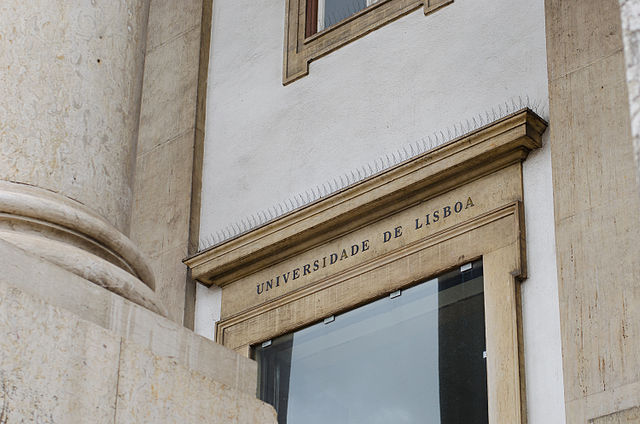
Thammasat University students interested in law, criminology, economics, business, political science, history, sociology, and related subjects may find it useful to participate in a free 2 November Zoom webinar on Maritime crimes and the ‘interdiction’ of ships without nationality.
The event, on Thursday, 2 November 2023 at 7pm Bangkok time, is presented by the (UK).
The TU Library collection includes books about different aspects of maritime crime.
Students are invited to register at this link:
https://zoom.us/webinar/register/WN_bi74ni7kTCCvm_90FB2LcQ#/registration
It is generally acknowledged that stateless vessels pose significant threats to good order at sea as they are often involved in illegal activities, such as piracy, terrorism and smuggling migrants. Questions have been raised whether provisions on the right of visit and right of pursuit to interdict stateless vessels on the high seas give states a right or duty to interdict stateless vessels on the high seas for enforcing security at sea.
The legal implications of using force as well as arresting and prosecuting persons on board a stateless vessel are to be considered.
Interdiction rules might change depending on whether a stateless ship is suspected of piracy or trafficking in migrants.
The event webpage explains:
Lecture summary: After the conclusion of the United Nations Convention on the Law of the Sea and the entry into force of its Article 108, the subject of maritime crimes has experienced many important developments. Indeed, at present, States have to deal with criminal actions which did not exist in the classical International Law of the Sea. Relevant examples include kidnapping and hostage-taking at sea, maritime terrorism offences, the smuggling of migrants by sea, illicit oil and fuel illicit activities in the maritime domain and the maritime crime of illicit traffic in narcotic drugs and psychotropic substances by sea.
The issue of jurisdiction to fight this type of maritime crimes may be complex, especially when the flag State does not respect its duties under the International Law of the Sea. Practice has shown that difficulties in acting can be particularly stormy when dealing with the fight against the maritime crime of illicit traffic in narcotic drugs and psychotropic substances by sea.
In these terms, the starting point for a contemporary analysis of the issue of interdicting ships without nationality in relation to maritime crimes can be a question of a general nature: when fighting against illicit drug trafficking must the principle of the exclusive jurisdiction of the flag state really be considered untouchable?
The speaker will be Associate Professor Fernando Loureiro Bastos, who teaches public law at the Faculty of Law, University of Lisbon, Portugal.
The TU Library collection includes a copy of his coedited book, Global Challenges and the Law of the Sea.

Serving as commentator for the event will be Dr. Tor Krever, who will speak on Piracy as a maritime crime.
According to an announcement posted in May 2023 on the Lauterpacht Centre for International Law website,
Tor Krever, currently Assistant Professor at the School of Law, University of Warwick, will be joining the Lauterpacht Centre as a Fellow from immediate effect. He will be joining the Faculty of Law in October 2023 as Assistant Professor in International Law.
Tor’s work is focused on the history and theory of international law, as well as critical and approaches to international law and left-legal theory more generally. His forthcoming book, which builds on his doctoral thesis, develops a materialist history of the pirate in international legal thought. The book reconstructs the conceptual history of the pirate in international law, analysing the theorisations of legitimate and illegitimate maritime commerce offered by international legal thinkers in their political-economic contexts. Against common assumptions that the pirate is a timeless legal category stretching backwards for millennia, he suggests that the modern juridical image of the pirate, as the enemy of trade, takes shape and crystallises only in the long-16th century, the product of this particular juncture reflecting inter-imperial rivalries and emerging merchant capitalist interests.
Looking forward, Tor is also developing a new research project on the relationship between anti-imperialism and international law, with a particular focus on the anti-imperial movements of the 20th century. An initial foray—a book chapter currently in press—considers the use of international law and legal argument as a mode of anti-imperial political resistance in the form of peoples’ tribunals—bodies set up by private citizens but modelled on legal courts for the purpose of judging and condemning state behaviour with reference to law. A further paper under work interrogates the treatment of the Third World movement in recent international legal histories, drawing attention to the erasure of political and ideological contestation and fractures within that movement.
Tor’s writing has appeared in a range of publications including New Left Review, the Harvard Journal of International Law, Third World Quarterly, the Leiden Journal of International Law, and the London Review of Books. He is also currently the co-General Editor of the London Review of International Law (Oxford University Press), which publishes critical, historical, socio-legal and other non-doctrinal international law scholarship.
Prior to joining the University of Warwick, Tor was a Visiting Research Fellow at the Centre for Social Studies, University of Coimbra in Portugal. He completed his PhD in Law at the London School of Economics and his earlier studies were at the University of Cambridge (MPhil and LLM) and Harvard University (AB and JD). He has worked on trade, humanitarian, and development issues at the United Nations in New York, human rights in Palestine, and international criminal law at the Special Court for Sierra Leone. He was also a visiting fellow at the Universidad Javeriana in Bogotá, Colombia and, in 2011, was law research clerk to Deputy Chief Justice Dikgang Moseneke of the South African Constitutional Court.

Maritime crime: a manual for criminal justice practitioners is available for free download on the website of the United Nations Office on Drugs and Crime, notes:
It is common for kidnappers to transfer crews to stateless vessels or to take vessels and/or crews ashore, or closer to shore or ports, where they are held until a ransom is paid. In this case, the hostages are within the jurisdiction of the State within whose waters or territory they are held captive. In these instances, the coastal State will have obligations in relation to safeguarding the human rights of those kidnapped. […] Regardless of whether kidnapping is committed by pirates, terrorists or other criminals, its transnational nature means that securing the release of hostages and establishing jurisdiction over kidnappers require transnational cooperation. Kidnappers often move their victims from flagged vessels to stateless vessels, through different maritime zones and ashore. This means that various States might have an interest in securing the release of their nationals and establishing jurisdiction over their kidnappers. Sharing information and coordinating rescue operations and effective prosecutions are important to achieve this end.

(All images courtesy of Wikimedia Commons)
